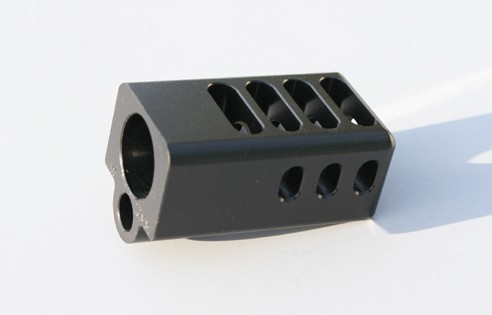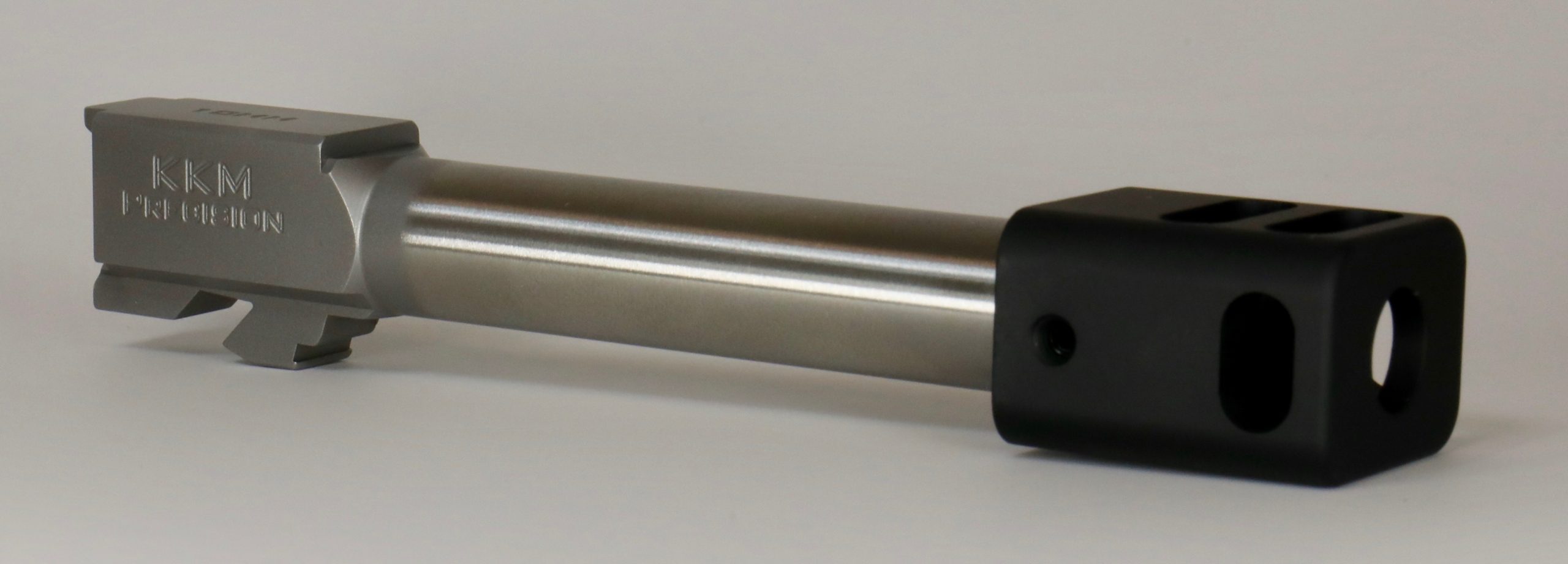Enhance Your Glock 20 With The Right Compensator: A Comprehensive Guide
Introduction to Glock 20 Compensators
When it comes to enhancing the performance of your Glock 20, one of the most effective upgrades you can make is adding a compensator. A compensator is a muzzle device that attaches to the end of a threaded barrel. Its primary function is to reduce recoil and muzzle rise, allowing for faster follow-up shots and improved accuracy. If you're a Glock enthusiast, you might already know that expert advice is just a toll-free call away, with Glock armorers on duty seven days a week. Let's dive into what makes the compensator such a valuable addition to your Glock 20.
Why Choose a Compensator for Your Glock 20?
Many Glock 20 owners find themselves in a situation where they want to enhance their firearm's performance. For instance, you might have a custom Glock 20 with a threaded barrel but aren't entirely satisfied with its appearance. In such cases, adding a compensator can be a game-changer. It’s not just about aesthetics; it's about improving the overall functionality of your firearm.
Recoil management is crucial, especially in firearms chambered in powerful calibers like the 10mm. While some argue that the 10mm recoil isn’t overly stout, even a slight reduction can make a noticeable difference. A compensator can help tame the recoil and muzzle flip, making your Glock 20 more controllable and enjoyable to shoot.
- Sherien Almufti Net Worth
- Movie Rulzin
- Jameliz Smith Leaks
- Carol Ann Susi Husband
- Movierulz 2023 Telugu Movie
What Does a Compensator Do?
A compensator works by redirecting propellant gases exiting the muzzle in a way that counteracts the upward movement of the firearm during recoil. This results in reduced muzzle rise and a more stable shooting platform. By stabilizing your firearm, a compensator allows for quicker follow-up shots, which is especially beneficial in competitive shooting or self-defense scenarios.
Choosing the Right Compensator for Your Glock 20
Choosing the right compensator for your Glock 20 is crucial for optimal performance. Not all compensators are created equal, and compatibility is key. Here are some essential factors to consider:
Compatibility
- Thread Size: Ensure your compensator matches the thread size of your barrel. Common thread sizes for Glock barrels include 9/16 x 1.5 for many models, but always verify with your specific firearm.
- Model Compatibility: Not all Glock models are compatible with the same compensators. For example, the Anarchy Outdoors Glock 17/19/20 compensator is not compatible with a Glock 21. Always check the specifications before purchasing.
Material and Construction
High-quality compensators are typically made from durable materials such as aluminum or stainless steel. CNC machining ensures precision and consistency in manufacturing. Additionally, heat treatment and vacuum tempering processes enhance the strength and durability of the compensator.
Design and Porting
The design of the compensator, particularly the porting, plays a significant role in its effectiveness. A well-designed compensator will have ports that efficiently redirect gases to counteract recoil. For example, the Carver Custom 4 Port Aluminum Comp is specifically designed to tame the recoil and muzzle flip of your 10mm Glock 20.
Integrated vs. Add-On Compensators
Some Glock models, like the Glock 20C, come with an integrated compensator in the factory barrel. While this can be convenient, it might not offer the same level of customization as an add-on compensator. If you prefer a more personalized setup, consider upgrading to an aftermarket compensator.
Benefits of a Glock 20 Compensator
Adding a compensator to your Glock 20 offers several benefits:
- Improved Recoil Management: Reduces recoil and muzzle rise, allowing for faster follow-up shots.
- Enhanced Accuracy: A more stable shooting platform leads to improved accuracy and consistency.
- Customization: Allows you to tailor your firearm's performance to your specific needs and preferences.
- Aesthetic Appeal: Many compensators come in sleek designs that enhance the overall look of your firearm.
Installation and Maintenance
Installing a compensator on your Glock 20 requires a threaded barrel. If your barrel isn't already threaded, you'll need to have it professionally threaded to ensure a secure fit. Once installed, regular maintenance is essential to keep your compensator functioning optimally. This includes cleaning and inspecting the compensator for any signs of wear or damage.
Tips for Maintenance
- Clean the compensator after each shooting session to prevent carbon buildup.
- Inspect the threads regularly to ensure a secure fit.
- Store your firearm in a dry environment to prevent rust and corrosion.
Conclusion
In conclusion, a compensator can significantly enhance the performance of your Glock 20. Whether you're looking to reduce recoil, improve accuracy, or simply customize the look of your firearm, a compensator is an excellent upgrade. By carefully considering factors such as compatibility, material, and design, you can choose the right compensator for your needs.
Remember, expert advice is just a phone call away, and Glock armorers are available seven days a week to assist you with any questions or concerns. With the right compensator, your Glock 20 can become an even more reliable and enjoyable firearm to shoot. So, if you haven't already, it's time to consider adding a compensator to your Glock 20 setup.
Summary: A Glock 20 compensator is a muzzle device that reduces recoil and muzzle rise, enhancing the firearm's performance. Compatibility, material, and design are crucial factors to consider when choosing a compensator. Proper installation and maintenance ensure optimal functionality, making your Glock 20 more controllable and enjoyable to shoot.

CARVER 4 Port 10MM Compensator for Glock Gen 3-4

20 Match 10MM Barrel with 5/8x32 Thread 4-Port Compensator (Fits Glock

Gen5 20 Match 10MM Barrel with 5/8x32 Thread 4-Port Compensator (Fits